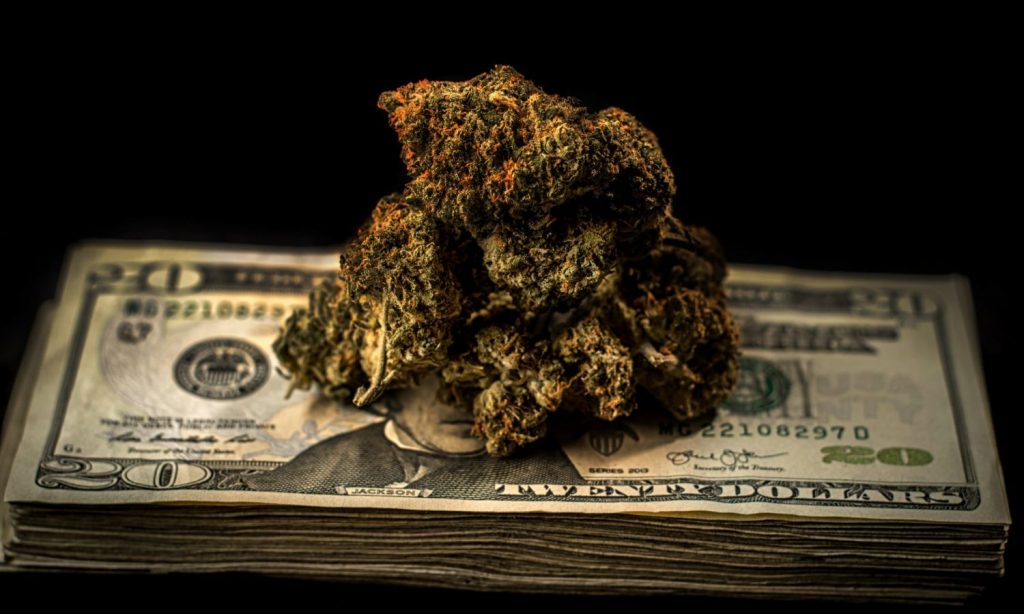
Is the U.S. Cannabis Market Doomed Like Canada’s?
Ask a longtime supporter of the cannabis legalization movement and he will tell you whether or not you are ready that a taxed and regulated cannabis market is all it needs to overcome tough economic times. Think of all the money the federal government can make from tax revenues alone, it is often said.
The only problem is these people refusing to pay the tax officer. In Canada, the cannabis trade currently has one 1.1 billion grams of excess weed which they cannot sell because many customers continue to shop on the black market. Some would even say that illegal sales caused the Canadian pot market to fail. This, of course, begs the question: is the U.S. cannabis market doomed to suffer the same fate?
Photo by Aditya Chinchure via Unsplash
Canadian weed stocks are spoiling before it can be sold. In the past few years, around 500 tons of high-quality cannabis have been destroyed for retail purposes. swell credit the catastrophe means that 50% of the grass bought in the north still comes from the black market. That’s right, even though people have a legitimate source of buying pot, they’d rather get it from their neighborhood street vendor. Why? Because it’s cheaper and people can keep their anonymity. Some people don’t want to make their pot use public, legal or not. Unfortunately, loyalty to the black market is sabotaging the profits of Canadian cannabis companies.
In the United States, we’ve seen similar allegiance to the black market in some states that have legalized recreational use. California, Illinois and Massachusetts continue fighting with illegal pot sales. Some say it’s the expensive startup costs and license fees that cause the problem. There are also, of course, all of these marijuana users – the same ones who, in the days of the ban, claimed that weed could be an economic salvation if only taxed – who have the idea of paying taxes on something they can, vehemently refuse still cheaper from a guy down the street.
But it takes two to tango.
Meanwhile, the federal government is looking at the Great Cannabis Experiment and wondering how it will make it nationwide and profitable. Sure, they say ending prohibition is in the interests of social justice and repairing the damage caused by the drug war. The reality, however, is that they want to uncover the magical scheme that is making legal marijuana as great a boon for the U.S. as alcohol and tobacco. So far, everyone involved seems to have missed out.
RELATED: Canada Or US: Which Cannabis Industry Is Better Positioned To Go National?
If you remember, the industrial hemp, which was legalized again in 2018, should also give the country an enormous financial boost. It should be used on food, paper, tires, and everything else. But it couldn’t find traction. There are oversupply problems, high processing costs and no new markets. It seems that the nation is not ready to accept this just yet.

Still, financial experts say the U.S. cannabis market is not heading towards the same economic troubles as Canada.
“You have to be careful about comparing Canadian cannabis companies to their US counterparts, which are very profitable and still growing,” said Korey Bauer, chief investment officer and portfolio manager of Foothill Capital Management’s Cannabis Growth Fund. said Market observation. “The ratings in the US look much better at this current level.”
RELATED: Will Schumer’s Marijuana Legalization Bill Pass Before End Of 2021?
One recently report from Flowhub finds the U.S. cannabis industry is worth $ 61 billion. Much of the industry, however, will be forced to change once Uncle Sam joins the mix. States have no federal controls and mostly have to legalize as they see fit – for now. Senate Majority Leader Chuck Schumer is pushing for a bill this year that, if passed, would create national controls. Pot prices may get more expensive once marijuana is legalized nationwide.
It is conceivable that this will create a surplus situation similar to that in the north of Canada. Let’s just say your nearby marijuana dealer is unlikely to go out of style anytime soon.

Post a comment: